There are many valid reasons why regular maintenance of sites and their equipment is a vitally important part of running a forecourt. They include cost savings, efficiency, health and safety and other regulatory red tape, but the least tangible and yet arguably the most important is the customer experience.
If a forecourt is poorly lit or shabby, or the pump or car wash the customer came to the site to use is out of action, there is every chance they will choose to fill up elsewhere in future.
This is a principle that Wayne Fueling Systems believes in says UK and Ireland sales manager Soren Powell-Holse. "We have a mantra when we deliver maintenance ’Wayne deliver nozzle availability’. When a consumer comes onto a busy forecourt and spots an empty filling position and drives over there only to find it’s locked off because it’s not working, it’s very irritating for them. The overall consumer experience of forecourt maintenance has a very important role to play so we should strive to have all nozzles available."
He adds: "Mechanical equipment will fail over time and most retailers recognise that. But there are some who will just think okay we will just keep that nozzle locked off for now until we decide whether to spend money on it, but that doesn’t give a very good impression of the overall site."
Reduce breakdowns
Wayne offers a range of services depending on what the customer wants in their insurance or maintenance package, and Powell-Holse says he has proof that "preventative maintenance" does reduce breakdowns.
"We have been able to demonstrate to customers that by having this preventative programme, they have pushed down the overall number of fault calls they have registered on their site. We have done studies with customers who we do annual inspections with and a year later looked at the number of reactive calls after the ’MOT’ compared with the period before we introduced it and demonstrated the number of reactive calls has gone down."
He adds that preventative calls do have a cost but you have to weigh that against the cost of the breakdowns that have been prevented.
Roger Perry, proprietor of Leven Road Service Station in Beverley, considers site maintenance an integral part of good housekeeping. "Not only does it mean that you are protecting your asset and reducing the likelihood of large bills in the future, but as customer service expectations continue to grow there is no place for poor maintenance anywhere on a forecourt. Add to this the implications should a forecourt contravene health and safety legislation in terms of costs and resources. Our philosophy is simple; stay on top of things and nothing should come as an expensive surprise."
Suresite is an industry leader in the provision of compliance audits and comprehensive risk assessments to forecourts, designed to establish the highest possible operating standards. Working with multinational oil companies, major retailing groups and independent operators, the aim is to educate the staff on legislation good practices and enable them to create awareness of potential hazards.
Keith Bevan, business development manager at Suresite, says: "The best operators understand the value of utilising our expertise to reduce the likelihood of expensive repercussions in the future. Our consultants are extremely knowledgeable with a wealth of industry-related experiences that they are able to convey in a practical way to forecourt personnel. As a result of our work and ongoing follow-up we help sites to eliminate risk and avoid potentially serious situations."
Leicester-based MPK Garages, which was ranked eighth in the 2014 Forecourt Trader Top 50 Indies with 28 sites, is one of the independent groups which works with SureSite.
"We outsource key services such as IT support, phones, utilities and wet-stock management," explains Paul Kershaw, director at MPK Garages. "We are committed to protect its asset values, improve facilities and drive further growth across our forecourts and ancillary areas. Non maintenance can potentially be a massive drain on the business and we recognise the need to contract out to experts. For one site these represent a significant cost, multiply that by 25 and it’s why we take them so seriously. For example, by increasing our wet-stock controls we have seen losses fall from 0.4 to 0.2%. That is a saving of over £100,000 a year."
Maintenance is crucial
Dave Moseley, commercial director at Wilcomatic, agrees maintenance is crucial He says: "Customers might be spending £40-50,000-plus on a car wash. That’s quite a spend for a private site or even a big retailer, so to not maintain it seems almost crazy."
Car washes can produce revenue from the people paying to use them, but they can also generate indirect revenue from attracting customers who will also fill up with petrol and use the shop, but this only works if the car wash is in operation.
Moseley says: "The ultimate goal for any client is to have 100% commercial availability." The key to maximising that availability is keeping it maintained.
Wilcomatic advises a maintenance programme involving visits four times a year. Moseley says: "We recommend it because a lot can happen in three months. We do a number of mechanical and electrical checks."
The visits also involve an element of training for the staff on site. He says: "It’s a partnership with the people in the store. We educate them about how best to operate it because there is some maintenance they can do with some daily checks so they can maximise the opportunity for the wash to be up and running.
"We recently had a situation where a site was out for three days and when the engineer went there, silver foil from a cigarette packet was stuck under the sensor. If they had done their daily checks they could have picked that up and avoided losing all that revenue."
While having 100% availability of equipment is vital, it’s wasted if a forecourt can’t attract customers, so it has to look the part too. Sean Kearney, business development director at signage specialists ID Maintenance, says operators have to project a professional image, and that includes maintaining their brand.
He says: "For instance, dealer signs can last anything between three and five years, but five years is a long time not to maintain the brand so we would recommend an annual, or certainly mid-way through the lifecycle, refresh."
During maintenance, he says, under-canopy signage needs to be cleaned because otherwise it becomes stained and uncleanable. The top of the canopy should also be inspected and the gutters cleaned. Fixings on the canopy signage and lighting should be checked, and he recommends fluorescent tubes should be replaced every three years. LED needs replacing much less frequently.
Forecourt Maintenance Services (FMS Ltd) describes itself as a one-stop-shop for forecourt maintenance. Director Dave Morgan says: "We deal with anything above the ground. Canopy and anything to do with it such as leaking canopies, the lights, we can refurbish a pole sign or build a pole sign from new whether it’s LED or fluorescent tubes, signage, and we can re-spray pumps with the same image or a new one."
The company does not offer contracts for regular maintenance although Morgan says: "We have a couple of sites we do an annual visit to on a ’spring clean basis’. We take a look and see if anything needs cleaning. We are mainly reactive. People come to us as opposed to us chasing people on the basis it’s their business and they run it as they wish."
Lifespan issues
Global-MSI is a specialist in forecourt canopy design, construction and maintenance, and over the years has built up an archive holding the original design drawings of around 75-80% of the forecourts in the UK, according to managing director Martin Steggles. He says this gives the company an insight into a massive potential problem for the industry as many canopies are still in use well beyond their designed lifespan.
Referring back to the 1980s, he says: "When we were designing them to the British Standards at the time, they had a design life of 25 years. That doesn’t mean to say that as soon as the 25 years are up there would be major problems because if that was the case it would cover half the forecourts in the UK.
"What we are saying is if you have a forecourt and you don’t know how old it is, or you suspect it might be older, then it at least needs looking at by an expert to confirm it’s okay or whether work needs to be undertaken."
If canopies have been well maintained they can last well beyond 25 years, but he says that in ones that haven’t been maintained, rainwater often gets in and causes corrosion in the steel structure. This can weaken it and in some cases has caused canopies to collapse.
He adds: "It’s a cost issue, but looking at it from the point of view of prolonging the life of the assets then it makes sense. Typically on a large canopy, to replace the gutters and roof sheets can cost £10,000 and with basic maintenance that can be put off for years."
Retailer view
Louise Hammond, manager of AW&D Hammond’s Jet forecourt in Halesworth, north east Suffolk, is proud of the way her site is maintained and of the 100% mark it scored in a recent review.
She explains: "As part of being a Jet dealer we have an annual audit." The auditor takes a thorough look at the site marking it from the simplest items such as a box left in an alleyway through to the upkeep of equipment such as the pumps and even includes checks on items such as liability insurance.
Louise says maintenance is crucial for a number of reasons. "It’s cost effective from our point of view. To prevent as you go along rather than wait for a bigger issue.
"It’s also health and safety as you have an obligation of duty of care to staff and customers. Also, if things are maintained properly, they are more efficient and it saves in running costs. And for customers it’s a more welcoming environment if things are working and they look right."
There are three levels of maintenance on the site. Louise says: "We have a diary of tasks that are within our remit and our capability. General maintenance of the forecourt such as cleaning the pumps or the housekeeping within the shop are picked off by my staff. If it is a bit more we have a site handyman, who is shared with other Ford dealers, who is ladder trained."
Beyond that they pay for third parties to carry out all the regular technical maintenance, such as pumps, gauges, car wash and air conditioning. Louise says: "Most third-party contractors are local rather than national names. We ’sense’ everybody. If they are going to come onto site they have to fill in a questionnaire, and if someone can’t or isn’t prepared to, they don’t come on site because they are not going to be at our standards."
She says that when a maintenance bill arrives it can seem a lot but beyond the efficiency savings, just one call out to a breakdown company could cost as much. "It doesn’t eliminate all breakdowns of course, but it reduces them to a minimum. Also they have a duty to turn out to your site in a certain time over someone else who is calling them ad hoc."
She adds: "If you know what the maintenance costs are you can budget for them. They are fixed costs each year and if there is a call out it’s either free or a reduced hourly rate so there aren’t those unexpected costs.
"And if something does go wrong we know who to ring rather than searching round for someone."























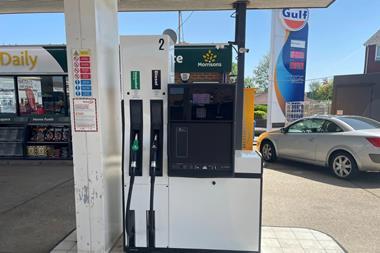
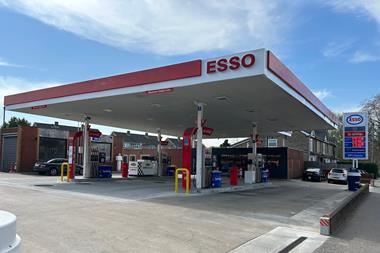
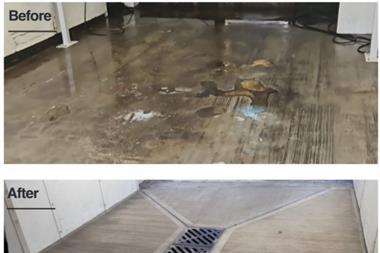
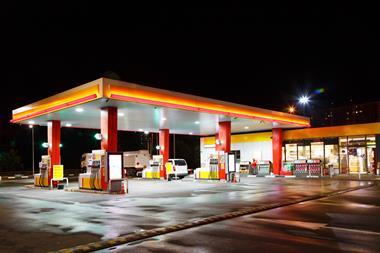
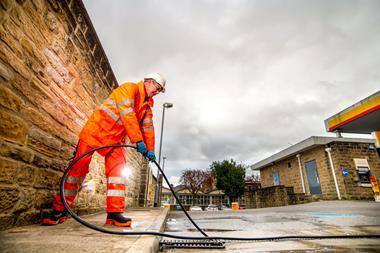
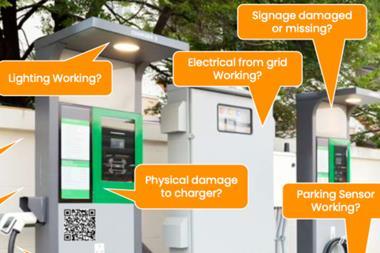
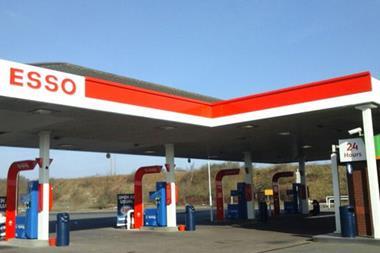
No comments yet